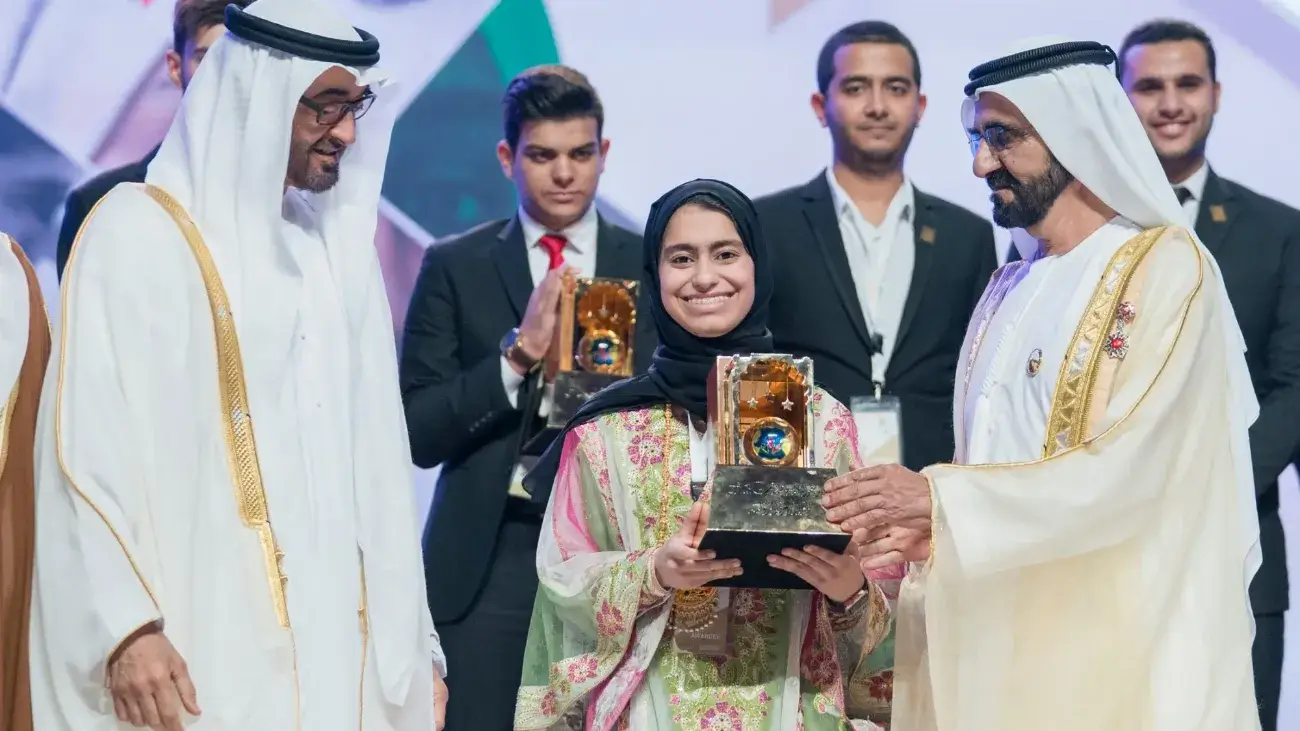
15 March 2024 - 3 min read
In recent years, the Middle East and Northern African region has been witnessing a significant shift in women ventures and startups. Having one of the highest rates of entrepreneurial projects in the world, the Global Entrepreneurship Monitor 2022/2023 reports women entrepreneurs own or run one in every three businesses and one in six women have reported the desire to start a business in the near future.
Due to the market’s competitiveness, as well as limited leadership opportunities, women are increasingly turning to entrepreneurship. In fact, the World Economic Forum 2022 Global Gender Gap Report underscores that the economic difficulties during the pandemic and the workplace inequalities have driven the growth of women entrepreneurs. To support that, the UAE hit the highest number of women among the 100 Most Powerful Arab Businesswomen listed by Forbes in 2020. Following a strong entrepreneurial culture in the region, businesswomen tend to demonstrate strong financial independence and management while promoting sustainability in their enterprises.
However, despite the varied progress in governmental initiatives, laws, and the societal trends, creating diverse opportunities for female entrepreneurs in the Middle East, women are still facing numerous challenges.
To understand how best support female entrepreneurs, it is important to first understand the different types of challenges women are facing in the Middle East. These challenges include:
Despite these challenges, many women in the Middle East are determined to overcome obstacles and contribute to the economy and their career growth through entrepreneurship. Here’s how public and private sectors can support female entrepreneurs in the Middle East by promoting an inclusive environment where they can thrive in:
Education plays a crucial role in empowering women and equipping them with the skills and knowledge needed to succeed independently as entrepreneurs. Organizations and governments can support female entrepreneurs by providing access to quality education and training programs. For instance, offering courses and workshops tailored to the needs of aspiring female entrepreneurs in the region, covering essentials such as business planning, financial management, marketing, and leadership skills. Additionally, hosting regular workshops that cover trending and up-to-date subjects is just as important. These subjects could include:
Moreover, professional qualifications, like those from the Chartered Management Institute (CMI), can validate their expertise but also enhance their credibility in the business world.
In general, just as much as social media marketing is vital for businesses, networking plays a big role in the success of any entrepreneur, and it is especially important for women in the Middle East as it represents their own branding within their fields.
Creating supportive communities and networks for female entrepreneurs can provide them with valuable resources, mentorship, and opportunities for collaboration. These networks can be established using industry associations, business incubators as well as online and social media platforms. By connecting with experienced mentors and peers, women can:

The National Bureau of Economic Research studies show that almost 80% of women are held back in their career aspirations due to a low self-esteem, lack of confidence, visibility and self-doubt at work.
Mentorship is a powerful tool for both personal and professional development. Meeting and hearing experienced mentors talk about their career journeys helps to create an environment for open connections where women can seek guidance, advice, support for their current obstacles and inspire one another.
Whether it is a one-on-one or a group mentoring sessions, women will benefit from diverse perspectives and experiences. Moreover, mentors can help overcome cultural and societal barriers and help to expand their networks.
Individual sessions encourage:
Whereas group sessions allow:
Thus, mentorship programs will allow female entrepreneurs to turn self-doubt into self-belief and be successful in their careers.
She’s Next, empowered by Visa, is a great example of mentorship program for women-owned small businesses, encouraging women by funding, training, and mentoring them. This program includes a $50,000 grant and other money prizes for its winners businesses as well free memberships to diverse communities such as the Amazon Web Services (AWS) Connected Community.
Celebrating the achievements of female entrepreneurs is inspiring for future generations while also helping to challenge stereotypes about women in business. These stereotypes include:
Highlighting success stories through media coverage, university alumni communications, national and international awards as well as recognition programs, can showcase the diversity and innovation of female-led businesses in the Middle East.
Raising awareness about the contributions of women to the economy will no doubt encourage more women to be more confident and pursue entrepreneurship. Experiences shared and learned serve as guidance from leading women with varying backgrounds from different industries, including:
Fatima Al Kaabi's entrepreneurial journey also showcases innovation and perseverance. As the founder of an e-commerce platform supporting local Emirati artisans and entrepreneurs, she preserves Emirati heritage while empowering individuals and uplifting communities, contributing to economic growth.

Government organisations must support women in business by implementing laws and regulations that promote gender equality, protect women's rights, and eliminate barriers to entrepreneurship. This includes addressing discriminatory practices, ensuring equal access to resources and opportunities, and providing support for work-life balance. Additionally, governments can incentivize companies to encourage diversity and inclusion policies that support female entrepreneurs in the workforce.
As per the World Economic Forum’s 2023 Global Gender Gap Report, the UAE is the leading country in gender equality in the Middle East. In both private and public sectors, women have been playing significant roles in business, government, and Science, Technology, Engineering and Mathematics (STEM) fields.
Over the past decade, the UAE’s vice president, HH Sheikh Mohammed bin Rashid's support has been impactful in encouraging achievements for women in the region. His leadership principles highlight excellence, success, commitment, and perseverance. Moreover, he has shown his trust in women has provided them with opportunities to excel and contribute to the development of the UAE.
“Our job is to provide an environment that unlocks women’s potential – one that protects their dignity and femininity, helps them create the necessary balance in their lives, and values their talents and potential. Given this environment, I am confident that women will perform nothing short of miracles.” – HH Sheikh Mohammed bin Rashid Al Maktoum
HH Sheikh Mohammed's vision for women's empowerment has led to the establishment of organizations such as:
This has also inspired the creation of diverse mentorship and training programs, such as:
Everyone plays an important role in supporting female entrepreneurs, from individuals to organisations, and creating communities and societies that encourage and foster collaboration, empowerment and support is essential.
Together, we can empower women to overcome barriers, drive economic growth and innovation in the Middle East.
Elevate your career by enrolling on a professional CMI management qualification today.